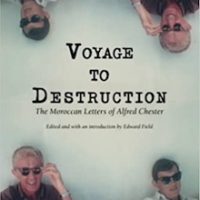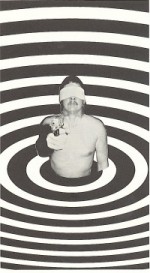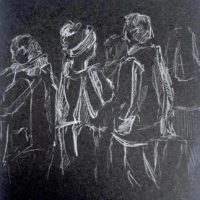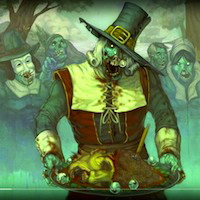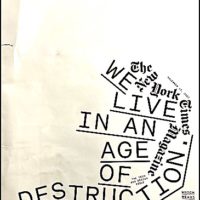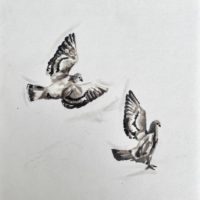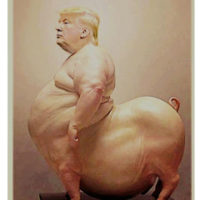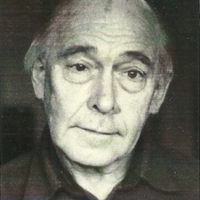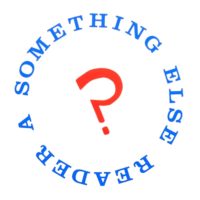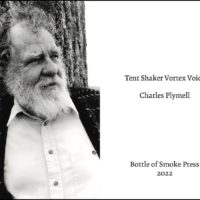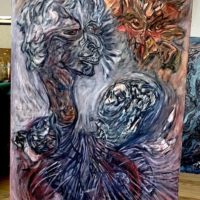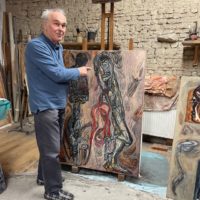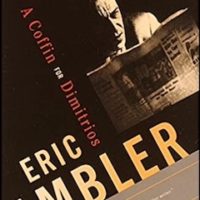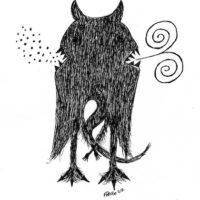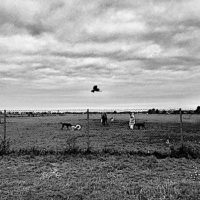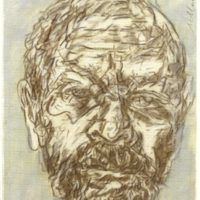Who reads Alfred Chester these days? Anyone? His huge, posthumous volume of Moroccan letters is worth every page (even the ones I felt like skipping).
A Libertarian Penchant for BS
This video sounds sane, but ‘tiz not my cuppa. As one of S/U’s indefatigable staff of thousands says, “Slickish until it’s obvious what the agenda is.”
Defsons for Mustill
We bloom only once
and some of us never bloom —
not even once. You were perennial.
Blogs Are Personal . . .
Keeping Up With a Gen Z Artist’s Recent Drawings
Two bats, one cat, and several people. Also have a look at this art student’s previously posted drawings..
A Straight Up Thanksgiving — It’s a Tradition
Our Thanksgiving team of William S. Burroughs and Norman O. Mustill
has been a happy pairing since 2012. It still is. So here they are again, sweetened by Heathcote Williams’s words in a narration-cum-montage by Alan Cox. It’s all so delish.
Designers Pushing the Envelope . . . ?
The New York Times Magazine used to have a nameplate. It still does. Most of the time it’s all there. Sometimes you have to search for it. How come? The designers are: a) being avant-garde, b) reinforcing a theme, c) too clever by half, d) all three, or maybe e) just having fun.
With Democracy in Peril
May the Midterms Land as Gracefully as Amélie’s Pigeons
The staff here has followed from a distance the drawings of a young Dutch art student, Amélie by name. She was precociously talented at 13, at 14, and at 15. She is now 16, and her studies continue with work more accomplished than ever. Regardless of the midterm outcome, we will be posting some of her other recent drawings soon.
Update Nov. 10 — The Dems oughta take Amélie’s pigeons as their aspirational logo.
Greed, Cheating, and Lies
Top Shitholer Goes Whole Hog at the Public Trough
“This case is about greed and cheating on taxes,” the chief of investigations for the Manhattan District Attorney, told the court and promised the jury it would get the ‘inside story’ of how the scheme was carried out. Unfortunately, the trial has been delayed due to a Covid infection. Until it resumes, here’s the outside story. This item has been updated.
Do You Remember ‘do you remember’ by Emmett Williams?
And is it the most rigorous piece of lyrical whimsy in the American poetry canon? I think so.
The poem, “structured by six vertical progressions,” was first published in “Underground,” in 1966. It appeared the following year in “An Anthology of Concrete Poetry,” published by Something Else Press, and most recently appears in “A Something Else Reader.”
do you remember
when I loved soft pink nights
and you hated hard blue valleys
and I kissed mellow red potatoes
and you loved livid green seagulls
and I hated soft yellow dewdrops
and you kissed hard pink oysters …
A Something Else Reader
Newly Discovered, It Was Hidden Away for 50 Years
” ‘A Something Else Reader’ is a previously unpublished anthology edited by Dick Higgins in 1972 to celebrate Something Else Press, the publishing house he founded in 1963, and to showcase Fluxus and other experimental artistic and literary forms. … He assembled the table of contents and an introduction into a proposal, which went into his archive, where it was found by scholar and curator Alice Centamore, who compiled the works and assembled it.” — Primary Information
Tent Shaker Vortex Voice
A Poet Inspired by Lucretius and Lauren Eisley
Charles Plymell’s extraordinary chapbook “Tent Shaker Vortex Voice” has just been released in a fourth printing by Bottle of Smoke Press. In a new prefatory essay to the long poems “We Heard the Game Lord Speak …” and “Planet Chernobyl,” he writes that he has “drawn upon Lucretius and Loren Eisley,” along with “many great thinkers from Darwin to modern atomic theorists” as well as Shakespeare. Plymell, who recently turned 87, is the author of two dozen books of poetry and prose.
‘wintry winds / inter these refugees’
silent armies
still gather
within …
heart-sick, we await
a new year of war
without
‘The archetypes are in us, and eternal’
“I was dreadfully alive to nervous terrors. The night-time solitude and the dark were my hell.” — Charles Lamb, as quoted by John Gross.
Lamb believed that superstition could have generated the apparitions he feared. But at bottom he discounted that. “These terrors are of older standing. They are transcripts, types—the archetypes are in us, and eternal,” he wrote. I thought of him last week when I saw this painting.
A Great Writer of Spy Thrillers Told the Awful Truth
‘Men had learned to sniff the heady dreamstuff of the soul and wait impassively while the lathes turned the guns for their destruction.’
— Eric Ambler
Orwellian Chuckle
Press Freedom in Full Squeak (replayed)
From a lifetime ago, though in fact it’s only been six years . . . and now what?
When a Poet Takes a Walk With Book and Camera
A I R F I E L D
‘Now that my hand just
reached into the book shelf
and grabbed your book,
it looks like you’ll be walking
out on the airfield with me …’
Day of Atonement: No Headline Needed
BRIGHTLY
Let us enter
the pure diamond
of evening
bound by nothing
but the pinprick
of the stars. . . .

